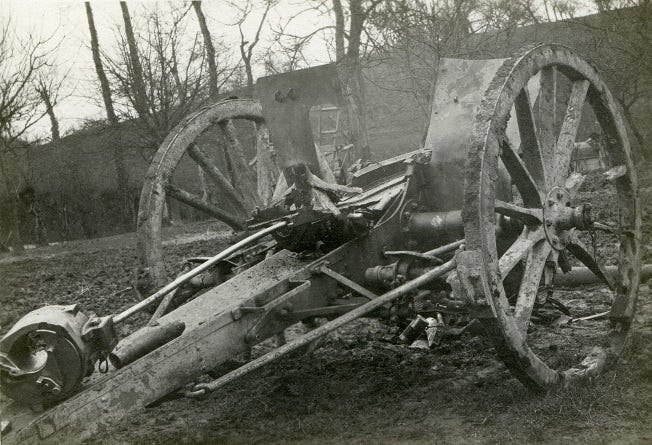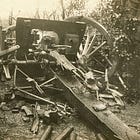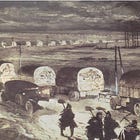Untimely Explosions (Background)
An Ordnance Decision Game
Untimely Explosions puts readers in the shoes of an actual person who, at some time in the past, found himself faced with a challenging problem. This post, the first in the exercise, provides readers with some background to the problem. The next article in the series will describe, in some detail, the problem at the heart of this “decision-forcing case.”
If you are new to decision games of the type published by the Tactical Notebook, you will want to read the following article.
Louis Baquet1
You are Louis Henry Auguste Baquet.
You were born on 25 June 1858, in Sedan, in the Department of the Ardennes, not far from the frontier that, in those days, separated the Empire of the French from the Kingdom of the Belgians.
On 1 October 1880, after four years of study at the École Polytechnique in Paris and the School of Application of Artillery and Engineering at Fontainebleu, you joined, with the rank of second lieutenant, the 13th Regiment of Artillery. In 1881, while serving with that unit, you took part in the conquest of Tunisia.
On 26 April 1886, after spending six years as a regimental officer and rising to the rank of second captain, you reported for duty at the arsenal of Bourges, a small city located in the valley of the Loire. Founded by Napoleon III, this factory produced artillery pieces for the army of the Third Republic.
While serving at the arsenals, you designed a number new artillery pieces and components for several more. Soon thereafter, two of your inventions, both of which were howitzers, were adopted for use with field batteries.
Between 1889 and 1914, you divided your time between tours of duty with the operating forces and assignments related to the design, testing, and production of artillery pieces. (Many of the jobs of the latter sort took you back to Bourges.)
In August of 1914 start of the war with Germany found you in Grenoble, at the head of the 53rd Infantry Brigade. On 27 August 1914, you were given command of the 13th Infantry Division. On 13 October 1914, after leading your division in the battle of the Marne, you relinquished command in order to take charge of the artillery of the freshly-formed Tenth Army.
Director of Artillery
On 10 November of 1914, Alexandre Millerand, the minister of war, put you in charge of the “inspection and centralization of all things concerning 75mm projectiles.” In December of 1914, he promoted you to the position of director of artillery.
As a result, you are now responsible for providing French forces in the field with all things that belong to the category of “ordnance.” In particular, Monsieur Millerand has asked you to acquire additional field guns, add greatly to the stock of artillery ammunition, modernize the many older weapons in service, procure heavy guns and howitzers of up-to-date types, and provide the infantry with large numbers of rifles and machine guns.
Before you had completed your second month as director of artillery, another task appeared on your list of things to do. Field gun batteries at the front are reporting that a large, and, as far as you can tell, growing, number of 75mm field guns are being destroyed by the premature explosion of high explosive shells.
The Game Begins in Earnest with the Following Post:
To Share, Subscribe, or Support:
The particulars of the career of Louis Baquet come from his file at Léonore, the database of the Légion d’Honneur; an obituary published in the Revue d’Artillerie; and the orders of battle of Les Armées Françaises dans la Grande Guerre. In cross-checking these sources, I have made extensive use of Mark Conrad’s splendid webpage on the French Army of 1914.








